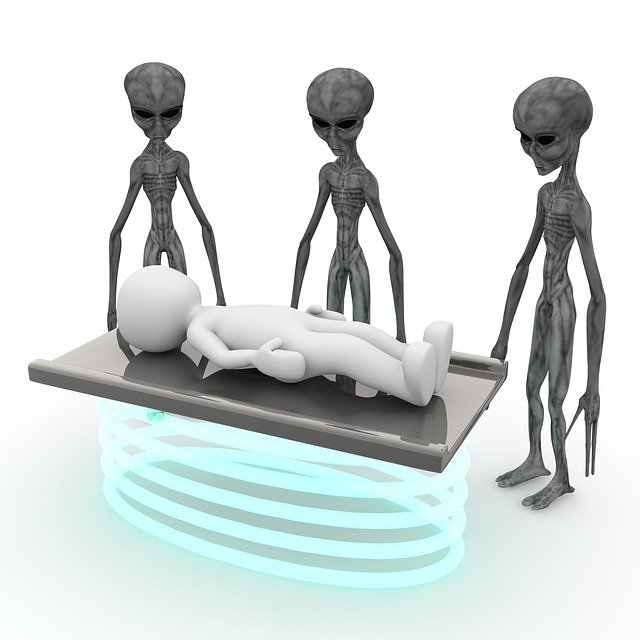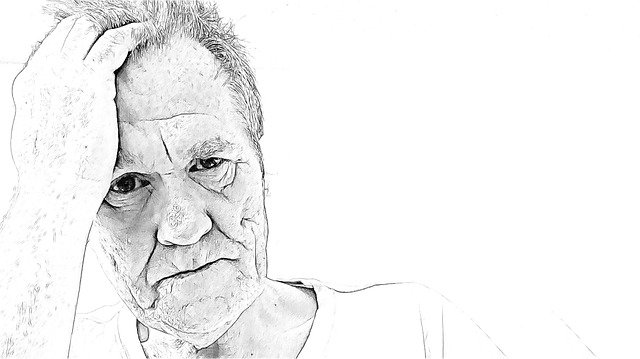They (1941) by Robert Heinlein - Review and Analysis
This review contains spoilers. You can read the entire short story at: http://www.unz.org

They, by Robert A. Heinlein was written in 1941. It is a short story about a man who is locked in an insane asylum after insisting that there is a lifelong conspiracy to convince him that he is a normal human male. That he was born sometime in the past into an average life, and must die sometime in the future of old age.
The progression of the story follows the nameless mental patient as he struggles with the daily existence of the life of one who feels like their world is a sham. Every morning he wakes from a dream which seems to hold all of the answers, but which he cannot remember once the orderly bursts in with breakfast.
In the beginning, he outlines his theory to the doctor over a game of chess. The physician asks him why he enjoys chess so much and the patient states, "Because it is the only thing in the world where I can see all the factors and understand all the rules." He outlines his lamentation that the lives of others are superficial and meaningless,
"They went to work to earn the money to buy the food to get the strength to go to work to earn the money to buy the food to get the strength to go to work to get the strength to buy the food to earn the money to go to...

Photo by José Martín Ramírez C on Unsplash
...and everybody tried to tell me that I should be doing the same thing. I knew better!"
None of it added up to the patient. How could all of the complications of society exist just so people could make 'idiot noises' at each other? His theory was that the entire production was intended to distract him from what really matters, whatever that might be. And his frustrations revolved around the fact that the plan seemed to be succeeding. Every time he seemed to be making progress, the world would conspire to make him feel crazy.

Photo by Jeswin Thomas on Unsplash
The moves in the chess game mirrored the parries and taunts of the discussion and both ended in a stalemate. After the physician left, the patient pondered his own theories. What evidence did he have for his point of view? He knew of the existence of himself and the data received from his senses, but beyond that, what? Why had they done it to him? And what was the truth behind the lie? He pondered the orderly; whether there was anything behind his big muscles and tolerant disposition. Why had they tried so hard to convince him that he would die in a few years? And what was his wife, another distraction?
He saw the telling of these lies and contradictions as a fact in itself. And saw their complexity as reinforcement that they did not want him to know the truth at any cost. Why bother with more than a cell and a strait jacket? Could it be that they dare not let him suspect his real identity no matter how difficult and involved the fraud? Perhaps the distractions were essential to the plan.

Image by 3dman_eu on pixabay.com
SPOILERS BELOW!
I found the story to be fascinating in many ways. Unfortunately the ending breaks down into all-too-common early science fiction tropes by revealing that the mental patient was justified in his paranoia all along. That the illusion being perpetrated by an alien race was crumbling and that his mind would be wiped again for another attempt. All of the tension is resolved with a “spooky” ending meant to, “send shivers down your spine!” I can’t help but feel like it was tacked on to please some editor of a magazine and forgotten.

Image by Sam Rusling on FreeImages.com.
Though, it does make me wonder about the horrors we inflict on our laboratory animals with little concern for their sanity, suffering or will. We like to think its better for them to go through experimentation than to subject one of our own to its possible negative effects, but higher life forms may think the same of us.
However, the feeling that the world is a distraction meant to prevent us from realizing our goals is a much more personal form horror than the idea of one man in a cage being studied like a lab rat. The uncertainty of whether the mental patient was actually insane added an interesting dynamic to the story which is destroyed by pulling back the curtain.

Image by geralt on Pixabay.com.
It is interesting to consider that the aliens were only offering the patient what we consider to be a normal and happy life. The fact that it was a life he didn’t choose for himself is his primary reason for resisting. The promise of a dream which was so ecstatic that he was willing to suffer every waking minute and resist reality itself for a taste of that dream. That is the horror which motivates every person to struggle against their world, and the true crux of the story.
Title logo created with Canva